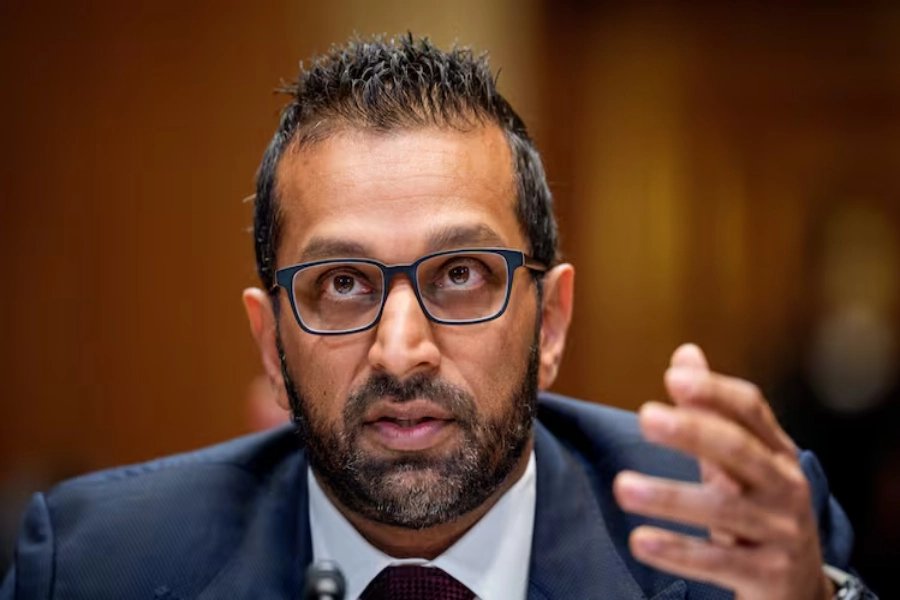The term MSNBC fired has been trending across news platforms after a shocking lawsuit exposed the alleged political firings of senior FBI officials under the Trump administration. The lawsuit, filed by three veteran agents, accuses top officials, including FBI Director Kash Patel and Deputy Dan Bongino, of prioritizing political loyalty over public safety and career protections.
This article delves into the details of the case, the legal implications, and the broader impact on federal law enforcement and whistleblower protections.
What Happened: MSNBC Fired Reporting Explains
According to MSNBC fired sources:
-
Three senior FBI officials—Brian Driscoll, Steven Jensen, and Spencer Evans—were dismissed allegedly for failing to show sufficient loyalty to President Trump.
-
The lawsuit claims the firings were part of a “campaign of retribution,” violating their First Amendment rights to free speech and association, and Fifth Amendment due process protections.
-
High-level DOJ and White House officials, including Stephen Miller and Emil Bove III, were reportedly involved in orchestrating these dismissals.
These dismissals raised national concerns about politicization of the FBI and the integrity of federal law enforcement.
Legal Analysis of MSNBC Fired Lawsuit
The lawsuit provides a unique window into federal employment law and civil service protections:
First Amendment Implications
Federal employees have the right to free speech and association, especially regarding political views. Dismissing agents for their political beliefs may constitute a violation of constitutional protections, even for high-ranking officials.
Fifth Amendment: Due Process
Federal employees are entitled to due process before termination. Rapid terminations without formal investigations may breach civil service rules, opening potential avenues for reinstatement or damages.
Whistleblower Protections
Some of the dismissed officials were involved in sensitive investigations, including the January 6 Capitol case. If dismissals were retaliatory, they may qualify for federal whistleblower protections, allowing legal recourse for wrongful termination.
Broader Federal Law Context
-
MSNBC fired coverage shows conflicts between the Executive branch and independent agencies like the FBI.
-
Legal scholars warn that unchecked political influence threatens rule of law and national security.
-
Cases like this could influence future federal hiring practices, employee protections, and oversight reforms.
Key Figures in MSNBC Fired Controversy
| Name | Role | Allegation in Lawsuit |
|---|---|---|
| Kash Patel | FBI Director | Followed White House directives over law |
| Dan Bongino | FBI Deputy | Focused on social media over investigations |
| Brian Driscoll | Senior FBI Agent | Fired for refusing political loyalty tests |
| Steven Jensen | Washington Field Office Head | Dismissed under political pressure |
| Spencer Evans | Las Vegas FBI Special Agent | Terminated due to far-right criticism on social media |
Public and Political Reaction
MSNBC fired reports fueled debates across media and politics:
-
Concerns over political interference in law enforcement.
-
Calls for Congressional oversight of executive branch influence.
-
Discussions about strengthening whistleblower protections for federal agents.
FAQ
What does “MSNBC fired” mean in this context?
It refers to reporting by MSNBC on the lawsuit filed by former FBI officials claiming politically motivated firings under the Trump administration.
Who are the FBI agents involved?
Brian Driscoll, Steven Jensen, and Spencer Evans—all senior FBI officials dismissed for allegedly failing to show political loyalty.
What legal rights may have been violated?
The lawsuit cites First Amendment rights, Fifth Amendment due process, and federal civil service protections.
Can the dismissed agents be reinstated?
If the court rules in their favor, they could be reinstated or receive damages for wrongful termination.
Why is this important for national security?
Politicization of federal law enforcement can compromise investigations, public trust, and operational effectiveness of agencies like the FBI.
Conclusion
The MSNBC fired story is more than just a media headline—it exposes potential conflicts between political agendas and the independence of federal law enforcement. The ongoing lawsuit will shape legal precedents on employee protections, whistleblower rights, and the limits of executive influence on critical national security institutions.

